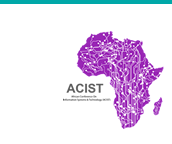Location
Harare, Zimbabwe and Virtual
Start Date
12-9-2024 12:40 PM
End Date
12-9-2024 1:05 PM
Description
This paper examines how Kenya's Generation Z (Gen Z) used digital technologies and platforms in a leaderless political and digital activism against the 2024 Finance Bill. Using post-digital theory and critical realism as analytical lenses, the paper examines how the embedded digital technologies and platforms were used for mass grassroots mobilisation. The paper adopted both qualitative content analysis with quantitative data scraping from social media and online news sources to reveal the main trigger as the deep economic grievances, which then triggered a demand for government accountability. The analysis also revealed how digital platforms (mainly X and Facebook) played a strategic, secure, financing and decisive role to mobilise and organise the Gen Z. The same digital mechanisms were also reversely shaped by the protests as they featured highlights, stories and compelling narratives from the protests that gave the activism significant momentum. The findings provide insights into the socio-political impact of digital activism in contemporary Kenya and discuss the broader implications for Africa’s youthful population. The relatively less brutal response of the Kenyan government sets a positive precedent, suggesting that open digital communication can coexist with peaceful protests and constructive dialogue. Recommendations for future practice and research are also provided.
From Tweets to Streets: How Kenya's Generation Z (Gen Z) is Redefining Political and Digital Activism
Harare, Zimbabwe and Virtual
This paper examines how Kenya's Generation Z (Gen Z) used digital technologies and platforms in a leaderless political and digital activism against the 2024 Finance Bill. Using post-digital theory and critical realism as analytical lenses, the paper examines how the embedded digital technologies and platforms were used for mass grassroots mobilisation. The paper adopted both qualitative content analysis with quantitative data scraping from social media and online news sources to reveal the main trigger as the deep economic grievances, which then triggered a demand for government accountability. The analysis also revealed how digital platforms (mainly X and Facebook) played a strategic, secure, financing and decisive role to mobilise and organise the Gen Z. The same digital mechanisms were also reversely shaped by the protests as they featured highlights, stories and compelling narratives from the protests that gave the activism significant momentum. The findings provide insights into the socio-political impact of digital activism in contemporary Kenya and discuss the broader implications for Africa’s youthful population. The relatively less brutal response of the Kenyan government sets a positive precedent, suggesting that open digital communication can coexist with peaceful protests and constructive dialogue. Recommendations for future practice and research are also provided.



